THE MAGNIFICENT DEVO
By Joe Rosenthal
PHOTOGRAPHY BY JAY SPENCER
By Joe Rosenthal
PHOTOGRAPHY BY JAY SPENCER
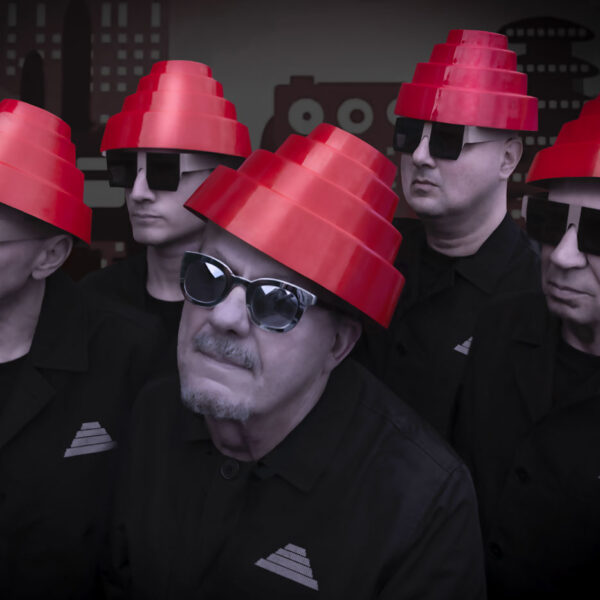
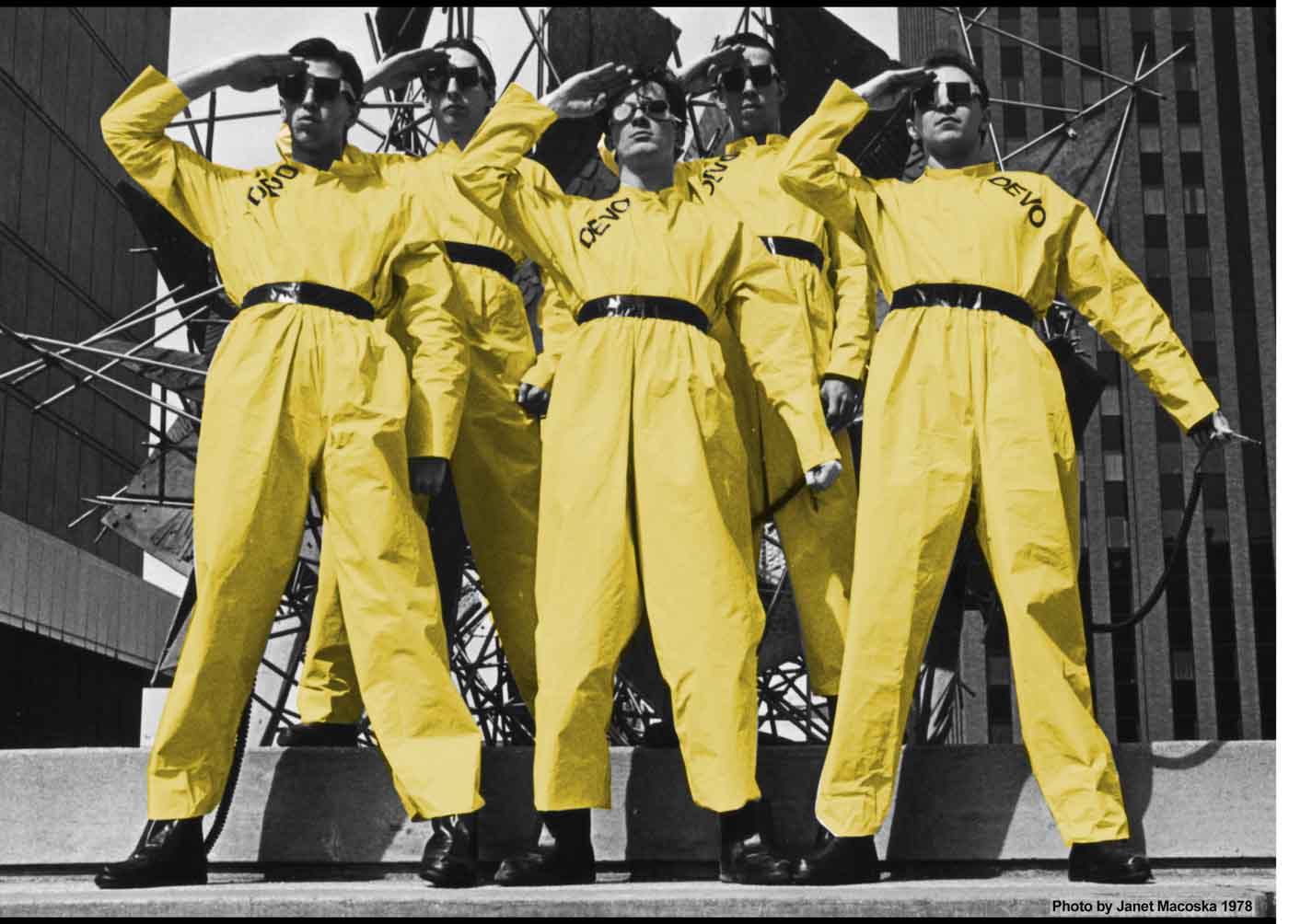
Billy Corgan distinctly remembers when he first encountered DEVO. It was a Saturday night in October of 1978. His dad—a musician who was a notoriously tough critic of contemporary music—was in the family room watching Saturday Night Live. DEVO were playing an otherworldly cover version of the Rolling Stones’ “Satisfaction,” wearing yellow jumpsuits and moving in mechanical unison as if they had been beamed in from another galaxy.
“My father was howling with laughter and joy. I came running in and he said, ‘you’ve got to watch this,’” Corgan recalls. “My father loves soul music and Sly and the Family Stone and Al Green. More commonly, he would wave me in front of the television and tell me why the artist he was watching was so terrible. He would tell me it was specifics, like ‘look how bad that drummer is.’ But he loved DEVO.”
Corgan was immediately transfixed by the art-rock group hailing from Akron, Ohio. They were the whole package—exceptional musicianship, killer songs, and stylistic innovation. To top it off, everything was held together by a conceptual vision of “de-evolution”—their take on an arcane philosophy of human regression that evoked classic European art movements served up with an earnest Middle American twist. But it wasn’t just a heady art project, it rocked hard, and it was a lot of fun.
“They were a great band, and they had all this vision,” Corgan says. “It takes a band like DEVO to remind us that rock isn’t always about being cool. It’s really about the fun and the fans.”
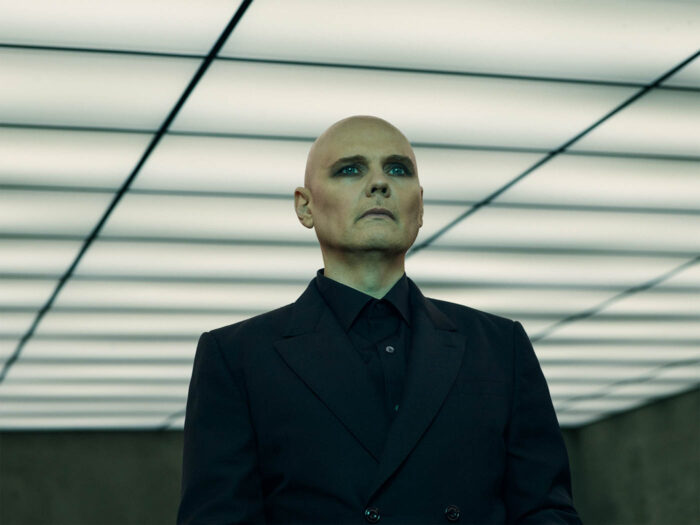
Later this month, for the first time, DEVO and Corgan will come together to share their unique perspectives on art, music, and culture during a unique live taping of Corgan’s podcast, The Magnificent Others, at his and Chloé Mendel’s Highland Park venue, Madame Zuzu’s, on August 28. Corgan will be speaking with DEVO founders Mark and Bob Mothersbaugh, and Gerry Casale. The podcast, which launched in February, is a platform for Corgan to host wide-ranging conversations with artists who’ve shaped popular culture and achieved the height of success in their fields.
“The styles of our music are very distinct,” says Casale, when asked about the parallels between DEVO and the Smashing Pumpkins—a band that entered the scene from Illinois two decades after his own band sprang from Ohio. “I think we probably share a lot of world view. As one of our song titles stated, ‘some things never change.’ And so here we are 50 years later with the snake eating its tail and de-evolution’s real.”
Mark Mothersbaugh echoes his bandmate’s sentiment: “I always felt like there were kindred spirit elements. There’s a lot of people in pop music that are just trying to make a hit. But the Pumpkins had a vision, and they made it work.”
DEVO’s own vision has stood the test of time exceedingly well. And, fortunately for fans, it was well documented. It turns out that the photographic artifacts from their heyday are also a part of this unique musical meetup.
In addition to being available to the general public, tickets for the event are being reserved for purchasers of limited-edition photographs taken during DEVO’s meteoric rise from Kent State art students to international influence. The images, taken by Ebet Roberts, Neal Preston, Allan Tannenbaum, and Richard Alden Peterson in the 1970s, capture the band in bright amber—from a time when rock photographers and bands collaborated in image-making that resonates to this day. (Buyers will also attend a meet-and-greet with the band on the same night as the podcast recording where the prints will be signed.)
“When Gerry and I met, we were art students first,” Mark recalls. “We wanted to look like a machine. We wanted to look like a working unit. The five of us instead of, you know, Kenny Rogers and the First Edition or something. Instead of personalities that stick out, we wanted to make us all blend together.”
For Corgan, the images captured something essential in the group: “When you look at those images and you see how young they look, you see the courage and the willingness to set themselves aside to make the point that they were after in such an unconventional way.”
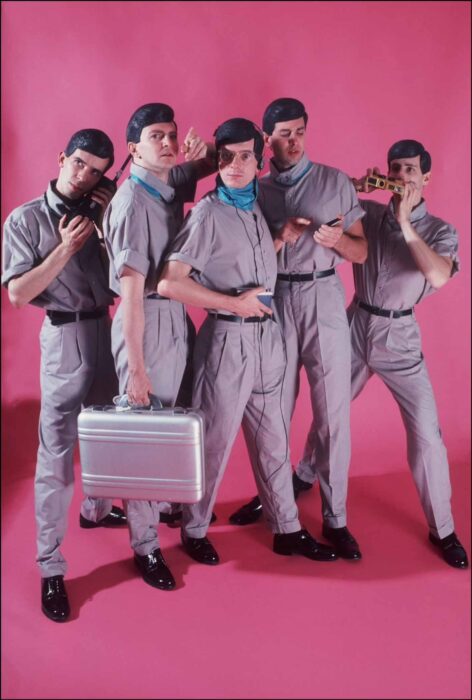
One of the topics that Corgan is certain to cover with the band is their experience being a world-beating band from the Midwest—something the Smashing Pumpkins founder knows a bit about.
“I grew up in a ‘nowhere’,” the singer says. “You don’t have a problem reinventing who you are and where you’re from. It doesn’t mean you don’t love where you’re from. It just means there’s nothing there for you. I used to sit backstage with the band in the early days circa 1988 and ‘89 and say, ‘we have to get outta here.’ We cannot achieve what we need to achieve if we stay here.”
As Casale recalls, “If you were an artist, a creative person, or different at all, you know, you were shunned. Are they going to defeat your spirit and your desire to create or are you going to prevail?”
Mothersbaugh felt it worked to their advantage at times: “People in Europe would say ‘where are you guys from,’ and we’d say Akron. And to them Akron sounded like Krypton or something out of a Superman comic or something.”
It’s no coincidence that Corgan’s feelings about this part of the country run deep and are part of what motivated him and his wife and business partner, Chloé Mendel, to open Madame Zuzu’s on a lark in the Ravinia District back in 2012. It was designed to be a place to meet, renew, and be with family and friends.
After some trial and error, they moved locations and opened their current location on 1st Street, right in the heart of Highland Park. The tea shop has grown from a place to flip through vinyl and grab a hot beverage on a cold North Shore day, to a thriving cultural hub with a full menu of vegan fare, limited-run Pumpkins releases and rare vinyl, product collaborations (candles, teas, and more), and a slate of events for kids and families, seniors, and alternative music fans alike.
“When I was a kid, my mother used to take me to a place that was very short-lived in Chicago called Sally’s Stage,” Corgan remembers. “All the waiters and waitresses were on roller skates. It was kind of a pizza place, and they had a massive nickelodeon that was like a hundred-piece mechanical music machine, and all the ceiling was littered with pinball glass. It was very unusual, and it only lasted a couple years. It was a place to go and have fun with your family.”
Madame Zuzu’s was inspired in part by that vision of fun and community—and also by the boutique galleries Corgan used to visit in Soho in New York. It’s a way to bring interesting art, music, culture, and commerce to Highland Park. With the traction and community backing they now have, he and Mendel are looking for new locations in town to expand on their vision for future generations of the curious and creative.
“We hope to continue to create our own world of stuff,” Corgan says. “And find the fun in that.”
Sounds like something DEVO would get behind.
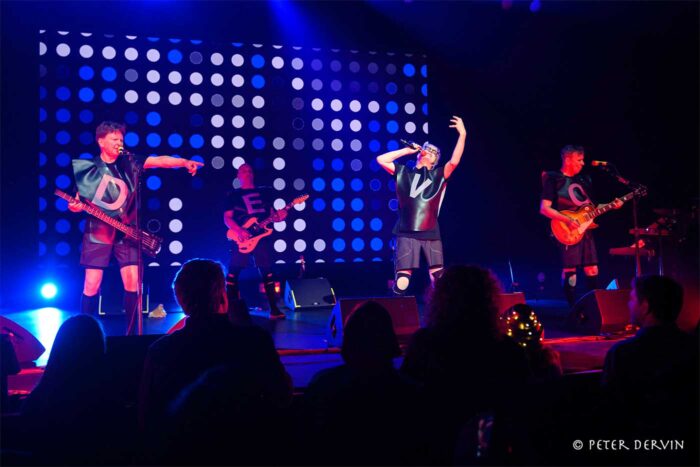
For tickets for The Magnificent Others featuring DEVO, visit eventbrite.com/e/devo-in-conversation-with-billy-corgan-tickets-1567563256899?aff=oddtdtcreator. A selection of tickets has been reserved exclusively for readers of The North Shore Weekend. Please use the code: NORTHSHORE. To purchase a limited-edition DEVO print, visit madamezuzus.com/collections/devo-prints. To learn more about Madame Zuzu’s, visit madamezuzus.com.
Sign Up for the JWC Media Email